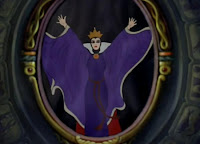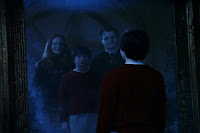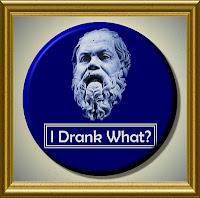From mental multivitamin, a perfect example of how academia can dampen the imagination (for example, the ability to imagine a humorous class comment)…
The week we were to discuss Tess, he opened as always, with a leading question about our response to the novel. For whatever reason, the class was silent, almost guiltily so. Didn't they read it? I wondered. He asked again. The absence of pseudo-erudition became most uncomfortable. We can sit here all night, people, the professor sighed.
Well, I offered with a light laugh and a glance around the room, that Angel is rather a slow one, eh? Who knew he'd be such a pill?
I was being a smartass. The lone journalism major among this set of English prof wannabes, I turned in papers according to conventional standards -- double-spaced, one-inch margins -- and I actually read the books. Every book. Every page. Of course I realized that Angel was a creature of the conventions and limitations of his time, but wasn't it fun to call him out on his double standards from the relative comfort and social tolerance of the late 1980s?
I guess not.
The professor spent the next two hours using my remark to demonstrate how utterly "some people" missed the point of the novel, how "limited" readers are when they can only frame their responses from their own experience, and so on. And my classmates? Who hadn't even read the feckin' novel? What a bunch of sycophants they turned out to be: Oh, yes, professor. Some people. So limited. How foolish.
That's a prof who's pretty sure of himself; most of the classics proffies I know would be filled with gratitude to realize that someone had done the reading that day ... and was willing to talk about it! Pin It








